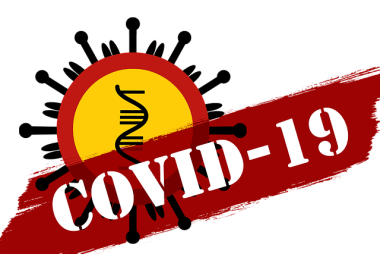As scientists desperately try to develop new drugs and vaccines to combat the spread of the new coronavirus, some countries are turning to existing rheumatology drugs to help in the fight
As scientists desperately try to develop new drugs and vaccines to combat the spread of the new coronavirus, some countries are turning to existing rheumatology drugs to help in the fight.
One promising example is tocilizumab (Actemra, Roche), a drug used for rheumatoid arthritis, juvenile idiopathic arthritis and giant cell arteritis.
It appears that some of the complications seen in more severe cases of COVID-19 are the result of an overactive immune response.
“For some time now, tocilizumab has been both FDA and TGA registered for cytokine release syndrome,” says rheumatologist at Austin Health and clinical pharmacologist, Dr David Liew.
It is used most notably in the application of CAR-T therapy for patients with cancer. This therapy can lead to an “inflammatory storm” which can lead to death quickly, he says.
“There are a lot of clinical parallels seemingly between this and the situation which seems to occur in COVID-19 where patients who are seemingly well or recovering undergo a rapid progression of pneumonia which seems to involve alveolar infiltration,” says Dr Liew.
Dr Liew is also the Australian lead for the COVID-19 Global Rheumatology Alliance.
There are reports of young patients appearing to get better, only to suddenly deteriorate.
A dysfunctional immune response has also been implicated in poorer outcomes for patients in the previous coronavirus outbreaks, SARS and MERS.
Research into SARS found that some patients faced cytokine storms, with an influx of IL-6, IL-12 and tumour necrosis factor-? (TNF?). Similarly, MERS patients were found to have an uptick in cytokine gene expression, such as IL-6, IL-1?, and IL-8.
Now data from China suggest that the IL-6 pathway may be important to the level of inflammation in the lungs of patients with COVID-19.
Previous research by Dr Xiaoling Xu, of the University of Science and Technology in Anhui, China, and his colleagues, found that aberrant pathogenic T cells and inflammatory monocytes were rapidly activated, which then produced an influx of cytokines and an inflammatory storm.
This suggested that drugs interfering with the IL-6, a key component in cytokine storms, could play a role in helping people recover.
Their new study, published in the preprint archive ChinaXiv, indicated that tocilizumab reduced fever and supplemental oxygen in patients hospitalised with severe or critical COVID-19.
The single-arm study of 21 patients, which has not yet been peer-reviewed, found that treatment with tocilizumab led to a rapid reduction in fever, such that it returned to normal within a few days, “and all other symptoms improved remarkably”, Dr Xu wrote.
Three in four patients reduced their need for oxygen supplementation within days, and 90% of the patients were discharged from hospital within 13.5 days on average. “The rest are recovering well,” Dr Xu continued.
In early March, Chinese health authorities recommended the use of tocilizumab for the treatment of patients who might have serious lung damage and high levels of IL-6.
It is yet to be officially be approved by China’s regulator, the National Medical Product Administrator.
Several trials are also currently under way into the drug’s use for patients with COVID-19 pneumonia. These results will be important, as the drug does not appear to have been approved by any country’s regulators for this indication.
The Italian Pharmacological Agency announced a phase 2 study into this, following reports that three out of six severely ill patients improved after being given tocilizumab. The study will track the mortality rate and health outcomes of 330 patients hospitalised for COVID-19 pneumonia.
Similarly, the rheumatoid arthritis drug sarilumab (Kevzara, Sanofi-Aventis Australia) is also being trialled in the US as a treatment to combat the overactive inflammatory response in the lungs of patients who are severely or critically ill.
Sanofi and Regeneron Pharmaceuticals recently announced they would be launching a phase II/III multi-centre, double-blind trial of up to 400 patients hospitalised with severe COVID-19.
The trial will randomly assign patients to either a low or high dose of the IL-6 receptor antibody or a placebo on top of their usual care, and the researchers will monitor how it affects their fever and need for supplementary oxygen.
The next step of the trial will be to track the long-term outcomes, such as if the drug reduces patients’ need for hospitalisation and mechanical ventilation and death.
Rheumatologists can play an important role assisting their intensive care and infectious disease physician colleagues if these drugs are adopted here, says Dr Liew.
“These are drugs which we have had to use for day in, day out, for many, many years,” says Dr Liew.
In such a rapidly changing situation, doctors unfortunately lack the good quality evidence that ideally guides clinical decision-making.
“In the absence of experience for a new rapidly emerging threat, we all need to share knowledge and share knowledge well,” says Dr Liew.


